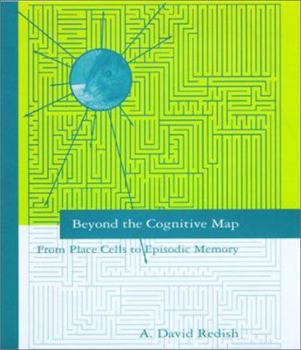Beyond the Cognitive Map: From Place Cells to Episodic Memory
There are currently two major theories about the role of the hippocampus, a distinctive structure in the back of the temporal lobe. One says that it stores a cognitive map, the other that it is a key locus for the temporary storage of episodic memories. A. David Redish takes the approach that understanding the role of the hippocampus in space will make it possible to address its role in less easily quantifiable areas such as memory. Basing his investigation on the study of rodent navigation--one of the primary domains for understanding information processing in the brain--he places the hippocampus in its anatomical context as part of a greater functional system. Redish draws on the extensive experimental and theoretical work of the last 100 years to paint a coherent picture of rodent navigation. His presentation encompasses multiple levels of analysis, from single-unit recording results to behavioral tasks to computational modeling. From this foundation, he proposes a novel understanding of the role of the hippocampus in rodents that can shed light on the role of the hippocampus in primates, explaining data from primate studies and human neurology. The book will be of interest not only to neuroscientists and psychologists, but also to researchers in computer science, robotics, artificial intelligence, and artificial life.
Format:Hardcover
Language:English
ISBN:0262181940
ISBN13:9780262181945
Release Date:July 1999
Publisher:MIT Press (MA)
Length:440 Pages
Weight:2.35 lbs.
Dimensions:1.2" x 7.2" x 9.3"
Age Range:18 years and up
Grade Range:Postsecondary and higher
Customer Reviews
0 rating





